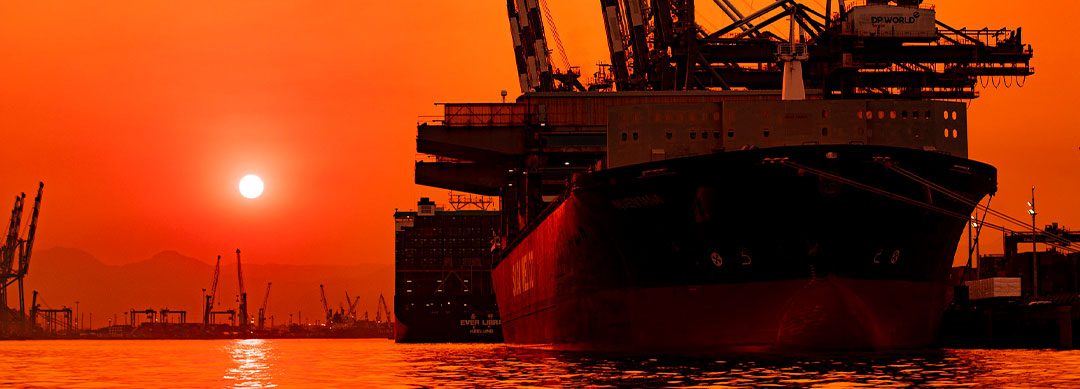CCBC’s Infrastructure Investment Committee focuses on state governments, in search of business opportunities
By Sérgio Siscaro
In early April, the round of infrastructure auctions, promoted by the federal government at Infra Week, included the concession of five port terminals, 22 regional airports, and Ferrovia de Integração Oeste-Leste (West-East Integration Railroad) (Fiol). Considered successful, the initiative confirmed that, even in the face of the uncertainties caused by the spread of the Covid-19 and by the political scenario Brazil should remain attractive to international investors. However, more and more recent federal budget cuts tend to leave in the hands of the states the responsibility of attracting investments for these segments.
According to the coordinator of Infrastructure Investment Committee (IIC) of the Chamber of Commerce Brazil-Canada (CCBC), Bayard Lucas de Lima, this process of decentralization of infrastructure investment initiatives results from the fact that the Federal Budget allocates only 0.1% of the Gross Domestic Product (GDP) to these projects, as calculated by the Getúlio Vargas Foundation (FGV). “With this, the government pushes to the private initiative the responsibility of building the logistic backbone of Brazil and makes the states responsible for trying to attract investors”.
Considering this scenario, the Committee’s work has been directed to state governments to identify local investment opportunities and risk factors for Canadian investors. “We are choosing states in which clearly there are many projects of interest. We identify all the potential existing risks, as well as the logistical difficulties that may be faced and the capacity to support the projects by the state secretariats involved. We have already heard from the Infrastructure and Economic Development Secretaries of São Paulo, Rio Grande do Sul, Paraná, Mato Grosso, and Ceará, what their priority projects are. We found out that they are very prepared to “sell” their projects, including actively seeking investors outside Brazil. Now we will have to talk to the government of Pará”, he adds.
The New Frontiers
In Lima’s opinion, there is no point in Brazil registering records in the agricultural segment if it continues to have problems in the distribution of its production. “The connection of Brazil’s new agricultural frontiers is an extremely important factor for the productive sector. It is no wonder that today we are witnessing this interest in the regionalization of infrastructure projects and the expansion of means of transportation,” he says.
He recalls that the recent auction of 22 regional airports, promoted by the federal government, was considered a success, with an average premium of 3,822.61% over the initial value. The IIC coordinator also mentions the privatization of highways in Paraná, Rio Grande do Sul, and Mato Grosso, as an example of this attraction to regionalization. “Port expansion is another logistical bottleneck, and we have already experienced expansion projects in Santos (SP), Pecém (CE), and Suape (PE). The entire flow of soybeans from the Midwest, which should be directed to ports in the Southeast and South, is being transported by BR-163 to Pará, where it is shipped”.
Besides the logistics segment, the Brazilian infrastructure segment presents several other attractive opportunities for foreign investments. According to Lima, a Nova Lei do Gás (New Gas Law), which breaks the monopoly of Petrobras in this area, is a positive factor for attracting investments. In addition, the area of renewable energy also generates a lot of interest, such as biogas, solar and wind power.
“The sanitation segment is also considered with great attention by Canadians, since they know how important it is for Brazil’s economic development. Without investments in drinking water and sewage treatment, we see the aggravation of health problems, which makes the investments in the other sectors of the economy unfeasible “, he points out.
Potential Risks
For Lima, the Committee’s role is to “translate the Brazilian market” for investors, not only presenting promising projects, but also explaining, in detail, the types of risks that can be involved. “We are not mere brokers of opportunities. We work in preparing investors to take advantage of the opportunities that are presented, in a more qualified way”, he affirms.
The coordinator asserts that the main risk currently encountered in Brazil is, with no doubt, the legal insecurity. “An example of this is the auction of Companhia Estadual de Águas e Esgotos do Rio de Janeiro (State Company for Water and Sewage of Rio de Janeiro) (Cedae): a few days before the auction it was still not known whether the concession period would be 35 or 25 years. There is also the image risk associated to Brazil, which is very much due to the environmental issue. That could become an obstacle for some foreign institutional investors, particularly those from countries like Canada, where there is a strong environmental conscience”, he says.
Political and economic factors can also drive away potential investors: “For the first time in decades, we are talking about political risk, with questions about the sustainability of the democratic regime. All these issues are back on the agenda at a very delicate moment. In addition, the states are financially insolvent, which puts into doubt their ability to execute the counterpart investments in infrastructure. A final issue cited by Lima is the growing trend toward deindustrialization in the country. “This is a real risk, so much so that we are seeing large companies leaving Brazil. This can compromise the demand for investments in infrastructure”, he ponders.
However, Brazil would still have an advantage: the risks are already known to foreign investors, especially Canadian investors, many of whom have been operating in the country for many years. “Infrastructure projects are long-term, which allows the investor to dilute these risks over the duration of the concession. In addition, other countries offer more serious risks, such as India, China, and several African nations. By exclusion, Brazil ends up being benefited”.




